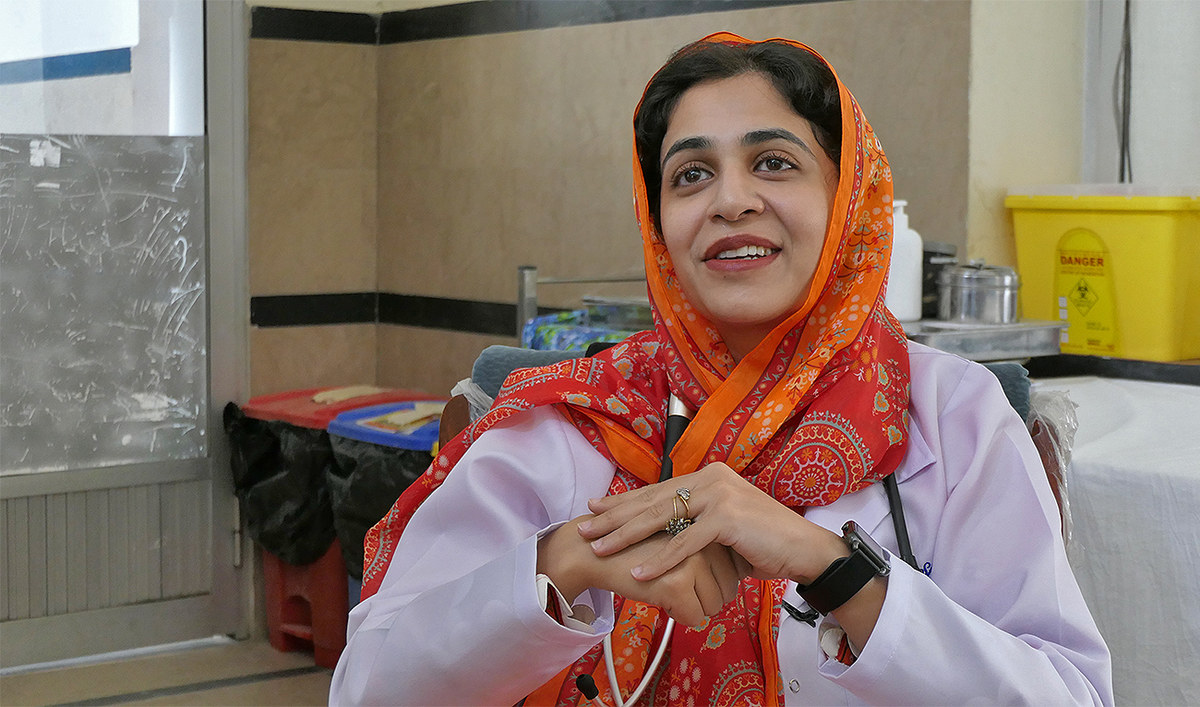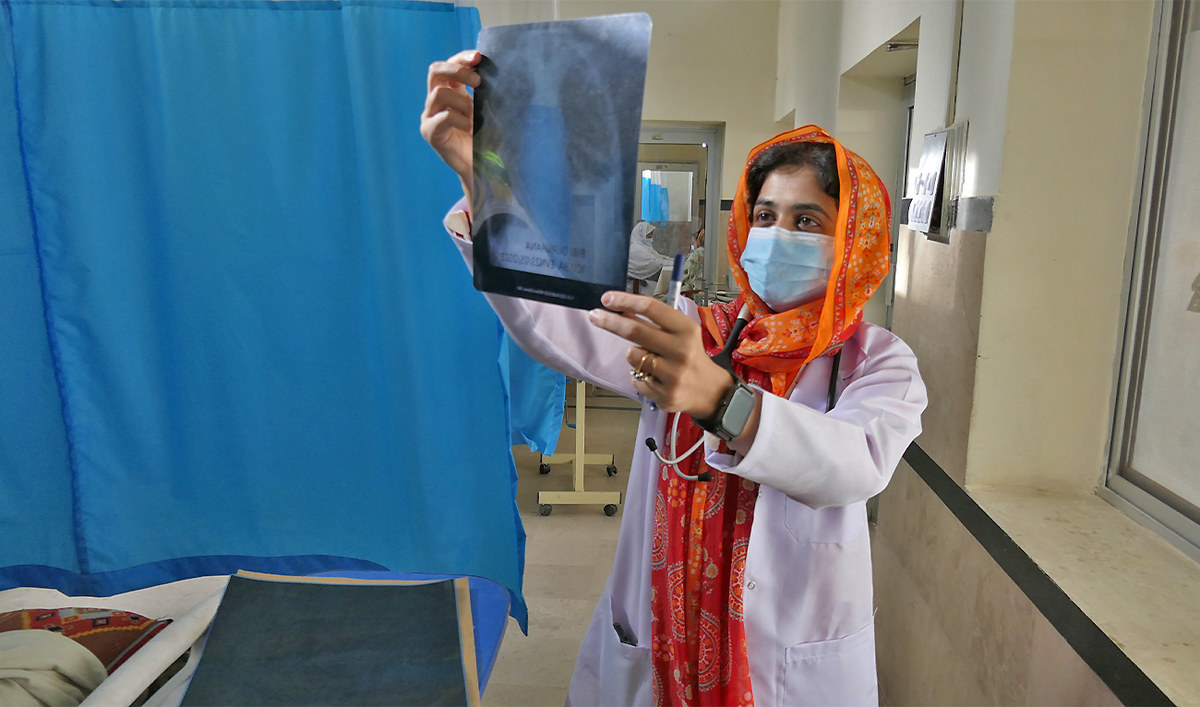QUETTA: As Dr. Mahwish Sharif entered the tuberculosis ward at the Fatima Jinnah Chest Hospital in Pakistan’s Balochistan province last week, she reached up to her ears to make sure her hearing aid was in place.
This is a routine check for Sharif, the first doctor in Balochistan with a hearing impairment, who overcame years of prejudice to finish medical school and be appointed as a doctor at the Fatima Jinnah Chest Hospital, the only health facility in the provincial capital, Quetta, for the treatment of respiratory and viral diseases.
The 29-year-old doctor hails from a remote village in the central Balochistan district of Kachi and dreamt of becoming a doctor as a child — even after she lost her hearing at age four due to sensorineural hearing loss, or SNHL, which occurs after inner ear damage.
“I used to act like a doctor while playing with my brothers when I was a little girl,” Sharif told Arab News at her office, smiling. “The white coat that doctors wear and the stethoscopes always inspired me.”

Balochistan’s first deaf doctor, Dr. Mahwish Sharif, sits in her office at the Fatima Jinnah Chest Hospital in Quetta, Pakistan, on May 25, 2022. (AN Photo)
But though her family supported her, Sharif’s graduation from Bolan Medical College in 2021 came after many long years of discrimination and insensitive comments even from faculty members.
“I found my teachers often complaining about my hearing disability,” she said. “Even in my last medical exams, they did not allow me to use hearing aids since they thought they were headphones.”
Sharif recalled how shaken she was while sitting for an exam and reading the word “disabled” written by an examiner next to her name.
She recalled another instance of discrimination when she was required to submit a permission letter to use a hearing aid for an exam she had sat for at the Balochistan University.
“I got the letter and when I went to the professor [to submit it], who was also head of department of surgery, he saw me and asked my name,” she said. “I told him my name and he said ‘you can hear, you have submitted a fake letter’.”
“Even after asking me all the questions [in the viva exam], he failed me in the final,” Sharif said.

Dr. Mahwish Sharif, Balochistan's first deaf doctor, examines a patient’s x-ray at the tuberculosis ward of the Fatima Jinnah Chest Hospital in Quetta, Pakistan, on May 25, 2022. (AN Photo)
Sharif’s experiences are not uncommon in a country where people with disabilities have to live with prejudice and lack of opportunities. In the absence of reliable data, estimates of the number of people living with disabilities in Pakistan vary from 3.3 million to 27 million, according to Human Rights Watch.
In January 2020, Pakistan passed the Disability Rights Act to provide a comprehensive legal framework to protect and promote the rights of people with disabilities. In July of the same year, Pakistan’s Supreme Court directed the federal and provincial governments to implement the new law which requires that two percent of people employed by an establishment be “disabled persons.”
The Supreme Court also ordered the federal and provincial governments to discontinue the use in all official documents and correspondence of derogatory terms such as “disabled,” “physically handicapped,” and “mentally retarded,” and instead use “persons with disabilities” or “persons with different abilities.”
But despite the passage of the law and the top court’s support, those with disabilities remain underrepresented in higher education and in the workforce in Pakistan.
Sharif, however, had “worked very hard” to overcome all obstacles, said Dr. Sadiq Baloch, the medical superintendent at the hospital, adding that he had never received any complaints about the doctor from her patients or their attendants.
“Mahwish has become a role model for our society where persons with disabilities are even marginalized by their own family members,” he told Arab News. “She has set a new precedent that people with disabilities can also fulfill their dreams.”
Hajji Basit, who had brought his mother to the hospital from Harnai district for the treatment of tuberculosis, said he did not face any communication problems with Sharif.
“She is very caring and loving with her patients and my mother feels more comfortable with Dr. Mahwish than any other doctor,” he said.
Speaking to Arab News, the director general of the provincial health department of Balochistan, Dr. Noor Qazi, called Sharif an inspiration.
“While we have allocated a specific quota for persons with disabilities in the medical profession, Dr. Mahwish has fulfilled her dream of getting this job on merit and set a new precedent for others,” he said.
For the future, Sharif said she hopes to work to achieve equality for people with disabilities, and wishes more parents would allow their children to face “the challenges of the outside world.”
“Parents should allow them to develop other skills to live an independent life rather than a life of dependency,” Sharif said. “I am disabled myself and I want to give a message to all disabled people that don’t lose hope, rather accept the challenge. Society will not let us excel until we strive for ourselves.”





















